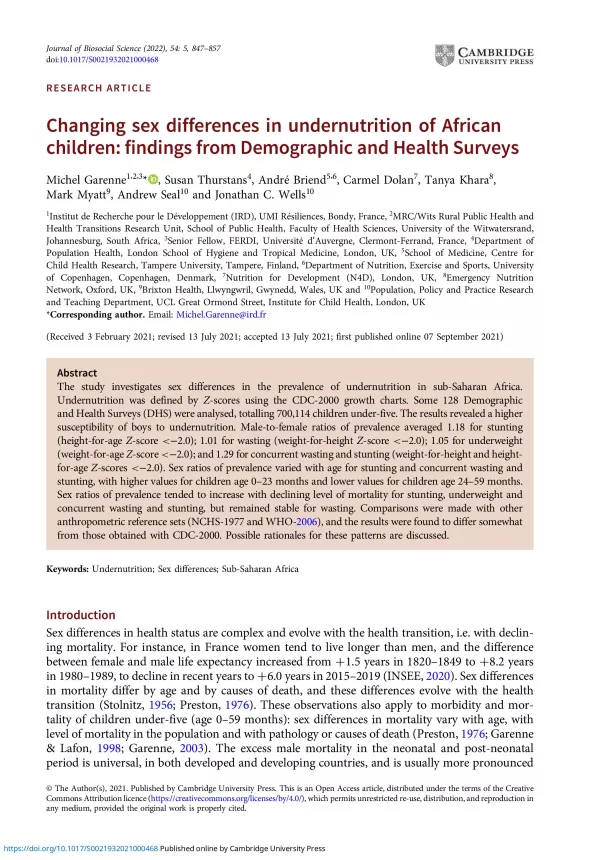Changing sex differences in undernutrition of African children: findings from Demographic and Health Surveys
Publication details
Abstract
The study investigates sex differences in the prevalence of undernutrition in sub-Saharan Africa. Undernutrition was defined by Z-scores using the CDC-2000 growth charts. Some 128 Demographic and Health Surveys (DHS) were analysed, totalling 700,114 children under-five. The results revealed a higher susceptibility of boys to undernutrition. Male-to-female ratios of prevalence averaged 1.18 for stunting (height-for-age Z-score <−2.0); 1.01 for wasting (weight-for-height Z-score <−2.0); 1.05 for underweight (weight-for-age Z-score <−2.0); and 1.29 for concurrent wasting and stunting (weight-for-height and height-for-age Z-scores <−2.0). Sex ratios of prevalence varied with age for stunting and concurrent wasting and stunting, with higher values for children age 0−23 months and lower values for children age 24−59 months. Sex ratios of prevalence tended to increase with declining level of mortality for stunting, underweight and concurrent wasting and stunting, but remained stable for wasting. Comparisons were made with other anthropometric reference sets (NCHS-1977 and WHO-2006), and the results were found to differ somewhat from those obtained with CDC-2000. Possible rationales for these patterns are discussed.
